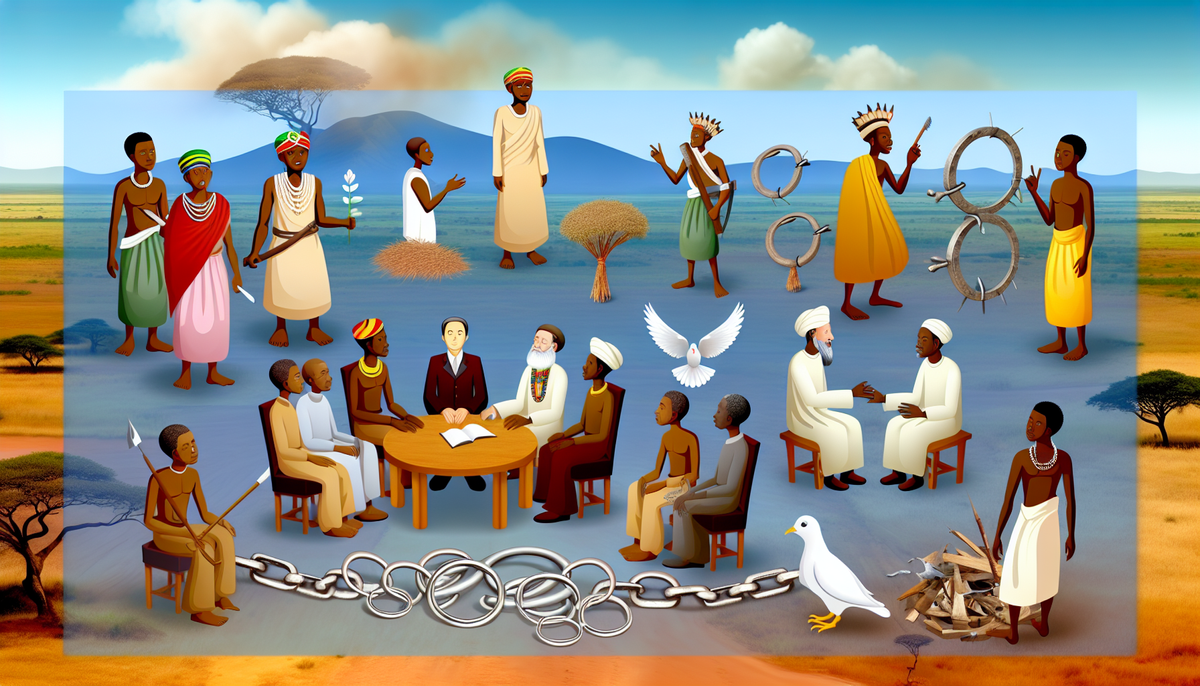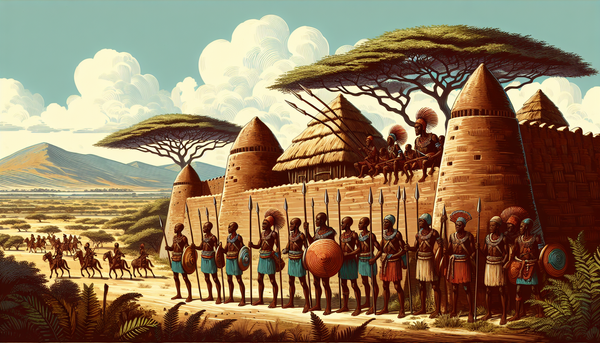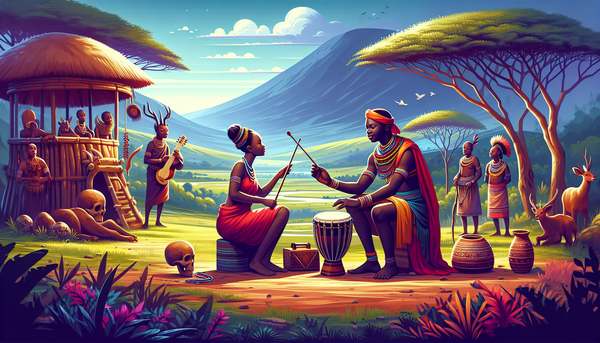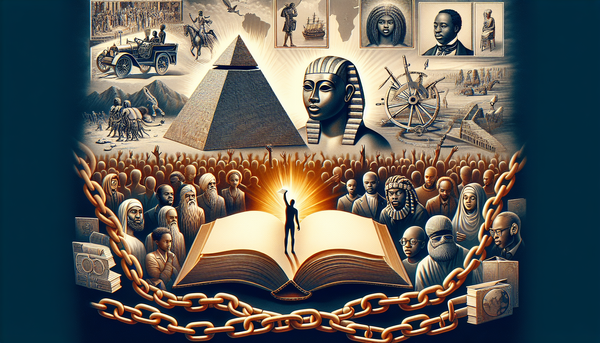A History of Conflict and Peacebuilding in Africa

Colonialism and Its Enduring Legacies
Colonialism in Africa, characterized by exploitation and oppression, has left deep-rooted legacies that continue to impact the continent. European powers carved up Africa during the Scramble for Africa in the late 19th century, leading to artificial borders that split ethnic groups and sowed seeds of future conflicts. The extractive nature of colonial rule, where resources were exploited for the benefit of the colonizers, hindered the development of strong indigenous economies and governance systems.
Furthermore, the imposition of European languages, religions, and socio-political structures disrupted traditional African cultures and social orders. The legacy of colonialism also includes the lasting impact on post-independence African states, as many grappled with political instability, corruption, and weak institutions inherited from the colonial era.
Colonialism's enduring legacies in Africa can be seen in ongoing struggles for equitable development, political stability, and social cohesion. Addressing these deep-rooted issues is essential for building a more prosperous and peaceful future for the continent.
Independent Movements and Nationalist Uprisings
The mid-20th century marked a significant period in Africa's history as various countries on the continent fought for independence from colonial rule. Independent movements and nationalist uprisings swept across Africa, fueled by a desire for self-determination, cultural autonomy, and political freedom. Visionary leaders such as Kwame Nkrumah, Nelson Mandela, Jomo Kenyatta, and Julius Nyerere emerged as key figures in their countries' struggles for independence.
These movements were often met with fierce resistance from colonial powers, leading to violent confrontations and protracted liberation wars. The sacrifices and resilience of African freedom fighters ultimately led to the dismantling of colonial administrations and the birth of new nation-states across the continent. The attainment of independence symbolized a new chapter in Africa's history, characterized by hopes of economic prosperity, social progress, and political stability.
However, the legacy of independent movements also included challenges such as ethnic tensions, authoritarian regimes, and neocolonial influences that continued to shape the post-independence era in Africa.
Civil Wars and Internal Conflicts
Following the wave of independence in Africa, many countries on the continent grappled with internal strife, leading to civil wars and violent conflicts that have had devastating humanitarian consequences. Rooted in factors such as ethnic divisions, political instability, resource competition, and external interference, these conflicts have inflicted widespread suffering on civilian populations and hindered the region's socio-economic development.
Countries like Rwanda, Sierra Leone, Angola, and Sudan experienced prolonged civil wars that resulted in immense loss of life, displacement of communities, and destruction of infrastructure. The legacies of colonial boundaries and power struggles within newly independent states often fueled these conflicts, exacerbating existing tensions and grievances.
International efforts, including peacekeeping missions and diplomatic interventions, have been deployed to mitigate the impact of civil wars and facilitate conflict resolution in Africa. Transitional justice mechanisms, such as truth and reconciliation commissions, have also played a role in fostering healing and reconciliation in post-conflict societies. Addressing the root causes of civil wars and promoting inclusive governance remain critical challenges for achieving sustainable peace and stability in Africa.
Regional Organizations and Peacekeeping Efforts
Regional organizations in Africa, such as the African Union (AU), Economic Community of West African States (ECOWAS), and Southern African Development Community (SADC), have played significant roles in promoting peace and security on the continent. These organizations have developed mechanisms for conflict prevention, mediation, and peacekeeping to address internal conflicts and regional tensions effectively.
One notable example is ECOWAS' involvement in the Liberian and Sierra Leonean civil wars, where the deployment of peacekeeping forces helped stabilize the countries and facilitate peace processes. The AU has also taken proactive steps in establishing the African Standby Force and Peace and Security Council to enhance its capacity for rapid response to crises and conflict situations.
Peacekeeping efforts led by regional organizations have often been supported by international partners, such as the United Nations, to provide logistical and financial assistance. These collaborative initiatives have been instrumental in resolving conflicts, protecting civilians, and promoting sustainable peace in Africa. The commitment of regional organizations to conflict prevention and peacebuilding reflects a collective determination to ensure a secure and stable future for the continent.
Truth and Reconciliation Commissions
Truth and Reconciliation Commissions (TRCs) have been established in various African countries to address historical injustices, human rights violations, and atrocities committed during periods of conflict and authoritarian rule. Modeled after the South African Truth and Reconciliation Commission, which played a pivotal role in the country's transition from apartheid to democracy, TRCs aim to promote healing, accountability, and national reconciliation.
These commissions provide a platform for victims and perpetrators of violence to share their experiences, confront the past, and seek forgiveness or justice. By documenting the truth of past events and acknowledging the harm inflicted on individuals and communities, TRCs seek to foster a culture of openness, empathy, and understanding among former adversaries.
While TRCs have been instrumental in promoting reconciliation and acknowledging the suffering of victims, their effectiveness has been subject to criticism regarding issues of accountability, reparations, and political interference. However, the legacy of TRCs in Africa underscores the importance of confronting truth, promoting justice, and laying the foundation for lasting peace and reconciliation in post-conflict societies.
Role of International Community in Conflict Resolution
The international community plays a crucial role in conflict resolution efforts in Africa by providing diplomatic support, peacekeeping missions, humanitarian aid, and mediation services. International organizations such as the United Nations (UN), European Union (EU), and regional bodies collaborate to facilitate dialogue, negotiate peace agreements, and address the root causes of conflicts in the continent.
Peacekeeping missions led by the UN have been deployed to various African countries to protect civilians, support peace processes, and help rebuild post-conflict societies. These missions often involve a combination of military, police, and civilian components to address complex security challenges and promote stability.
Humanitarian assistance from international donors and organizations also plays a vital role in alleviating the suffering of conflict-affected populations, providing food, shelter, healthcare, and education to those in need. Additionally, economic and development aid is essential for rebuilding infrastructure, promoting reconciliation, and fostering sustainable peace in conflict-affected regions.
The collective efforts of the international community demonstrate a commitment to upholding human rights, promoting peace and security, and supporting the aspirations of African nations for stability and prosperity. Collaboration between local stakeholders and international actors is essential for addressing conflicts and building a more peaceful future for Africa.
Future Challenges in Sustaining Peace
As Africa strives towards lasting peace and stability, it faces several challenges that could hinder progress and threaten the hard-won gains in conflict resolution and peacebuilding efforts. One significant challenge is the persistence of underlying root causes of conflicts, including poverty, inequality, political marginalization, and competition over scarce resources. Addressing these structural issues requires sustained efforts towards inclusive governance, economic development, and social cohesion.
Another challenge lies in the proliferation of non-state armed groups, violent extremism, and transnational organized crime, which pose threats to peace and security across the continent. Effective strategies to counter these threats require enhanced regional cooperation, intelligence-sharing, and targeted counterterrorism measures.
Furthermore, the impacts of climate change, environmental degradation, and natural resource mismanagement present additional challenges to peacebuilding efforts in Africa. Competition over land, water, and other resources can exacerbate existing tensions and trigger conflicts, necessitating integrated approaches to environmental sustainability and conflict prevention.
Sustaining peace in Africa also requires addressing issues of corruption, weak institutions, and human rights abuses that undermine trust in governmental authorities and erode social cohesion. Strengthening the rule of law, promoting transparency, and upholding human rights are essential in building resilient societies that can withstand internal and external threats to peace.
Overall, navigating these complex challenges will require continued commitment from African governments, regional organizations, and the international community to work together towards building a more peaceful and prosperous future for the continent.



